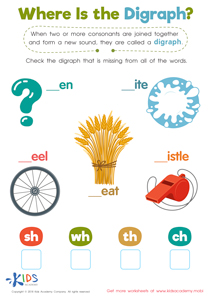Phonics Skills Beginning Consonants Worksheets for Ages 3-5
4 filtered results
-
From - To
Unlock your child's reading potential with our Phonics Skills Beginning Consonants Worksheets, designed specifically for ages 3-5. Engage little learners with fun and interactive activities that introduce consonant sounds and enhance phonemic awareness. These worksheets offer colorful illustrations and simple exercises to help children recognize and understand beginning consonants, laying a strong foundation for literacy. Perfect for home or classroom use, our resources promote independent learning while making phonics approachable and enjoyable. Empower your preschoolers with skills they'll use for a lifetime—explore our collection today and watch them grow as confident beginner readers!
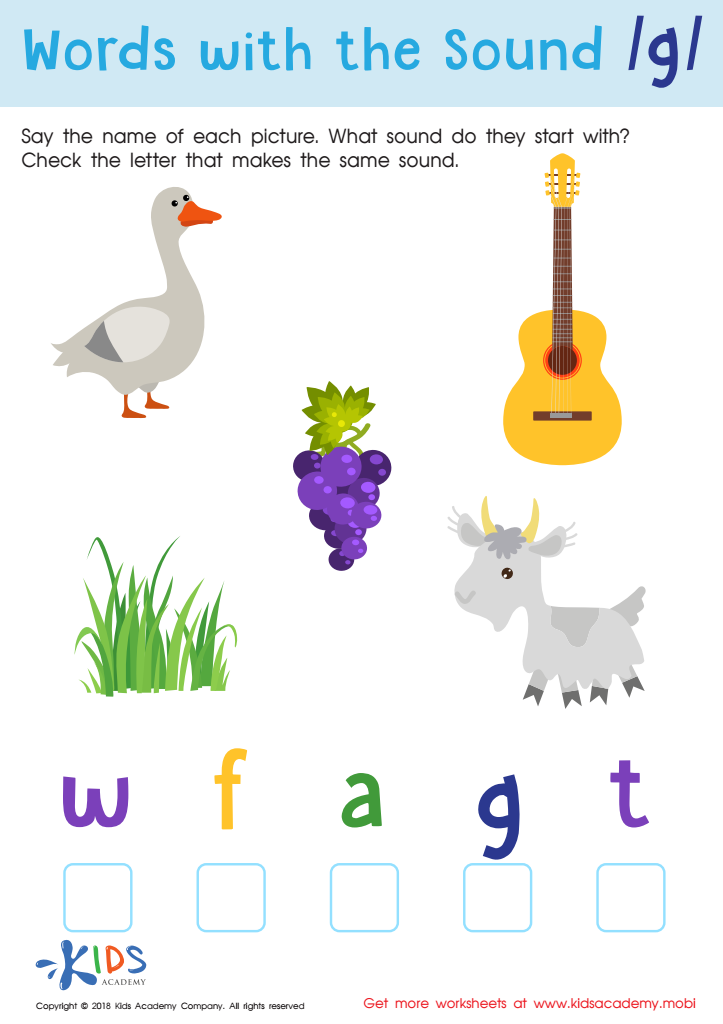

Words with sound g Reading Worksheet
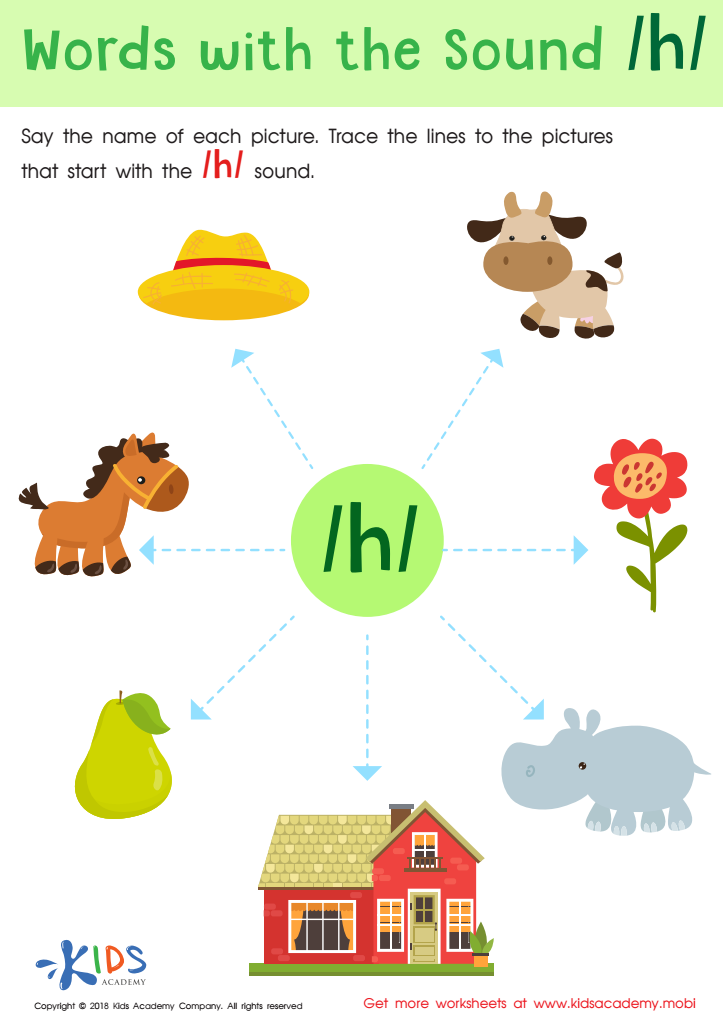

Words with sound h Reading Worksheet
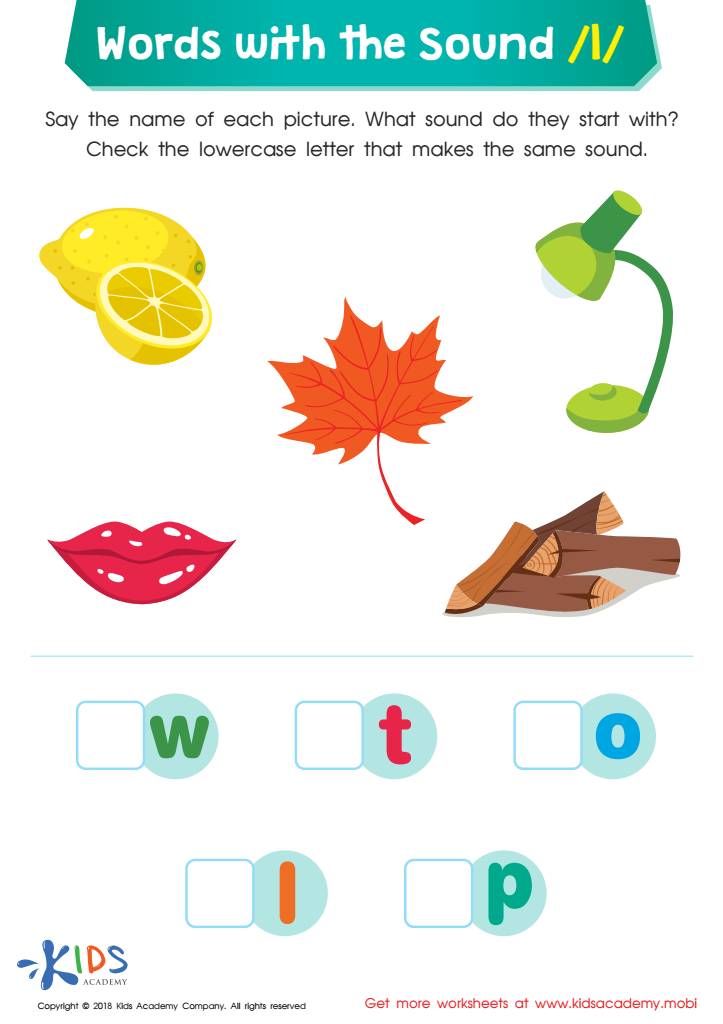

Words with Sound L Reading Worksheet
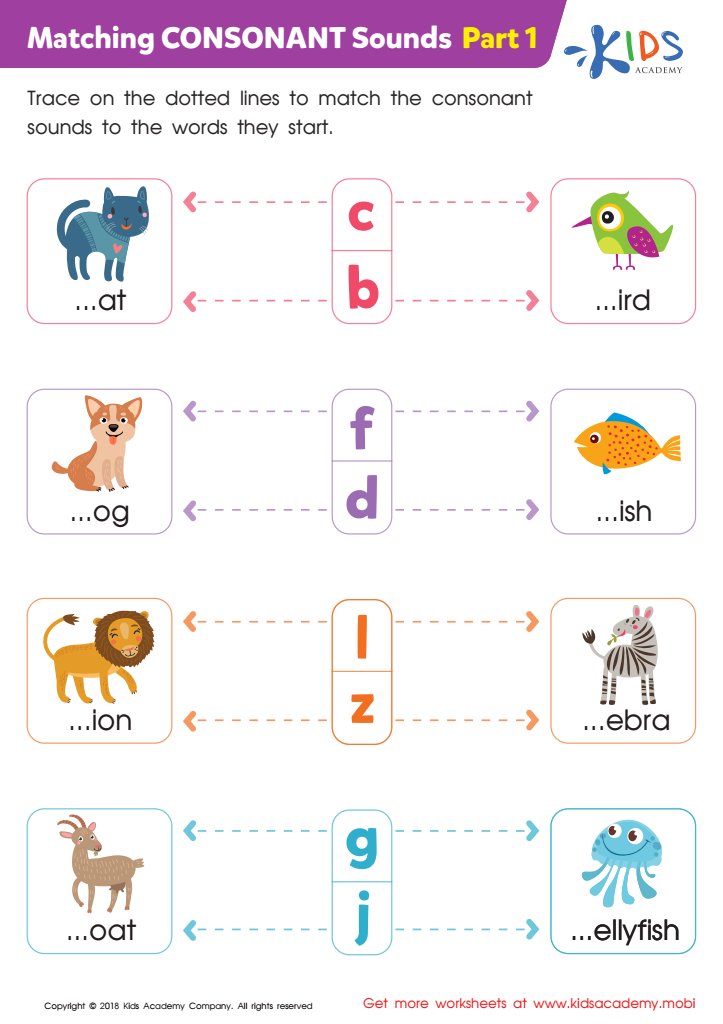

Matching Consonant Sounds: Part 1 Worksheet
Phonics skills, particularly beginning consonants, play a crucial role in early literacy development for children aged 3-5. Mastering these skills lays the foundation for reading and writing. Beginning consonants help children connect the sounds they hear in words with their corresponding letters, enabling them to decode words effectively as they progress into more complex reading.
When parents and teachers focus on these foundational phonics skills, they promote phonemic awareness, which is essential for successful reading. This understanding enhances vocabulary acquisition and comprehension, empowering children to express themselves better and understand the written language around them.
Engaging young learners with beginning consonant activities—such as games, songs, and storytime—makes learning enjoyable and interactive. It also fosters a love for reading from an early age, which can instill lifelong literacy habits.
Furthermore, developing strong phonics skills has been shown to positively affect a child’s overall academic achievements. As children become confident readers and writers, their self-esteem and motivation in learning grow. Therefore, parents and teachers should recognize the value of beginning consonants as a stepping stone toward a child's future educational success and happiness.
 Assign to My Students
Assign to My Students


